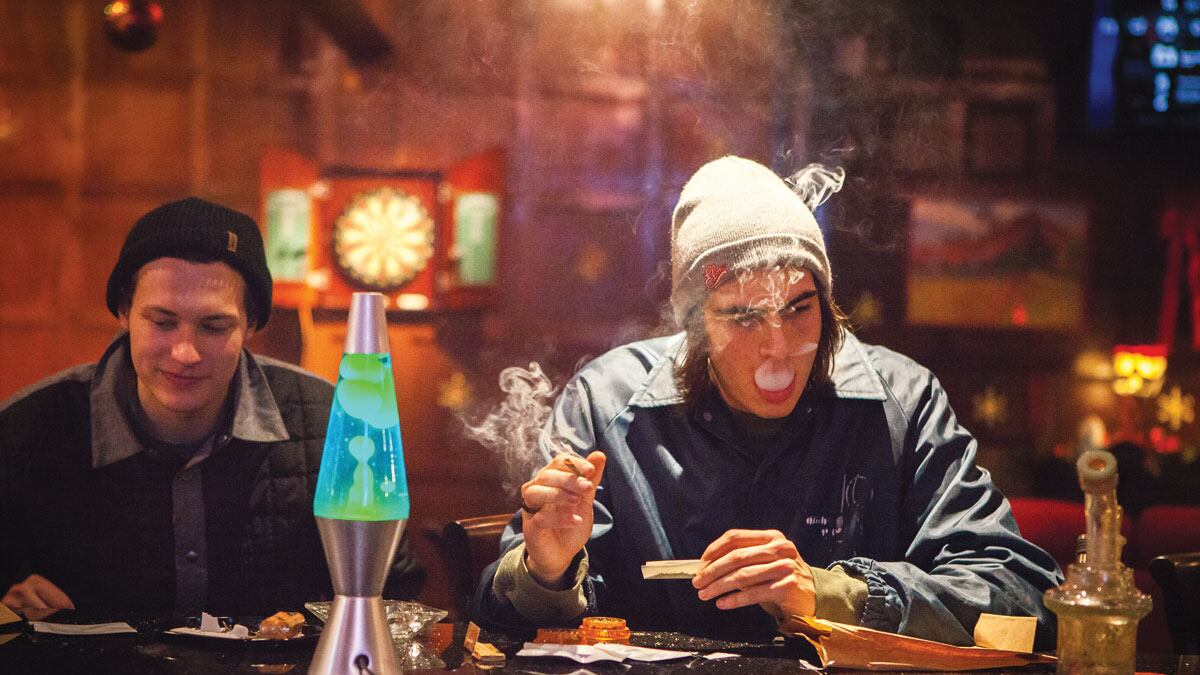As the laws stand now, legal consumption of cannabis is not allowed beyond the walls of your own home or another private residence. But the New Revenue Coalition believes consumers deserve more than house parties.
Led by Sam Chapman (co-author of the House bill that legalized medical marijuana dispensaries in Oregon) and Anthony Johnson, who co-authored Measure 91 to legalize cannabis, the NRC is organizing efforts to make social consumption a reality. The political action committee also believes the state is losing out on the economic growth and tourist dollars that could be gained by allowing regulated common consumption outside private residences—not to mention that it unfairly punishes users who don't live in places where consuming cannabis indoors is allowed.
WW talked with co-founder and co-director Anthony Johnson to learn more about the PAC's mission, why cannabis farms should be allowed to offer in-house tastings the same as vineyards, and how complacency is a bigger hurdle than Oregon's Indoor Clean Air Act.
WW: What are the campaign's major and minor objectives?
Anthony Johnson: The main objective is to bring more fairness and equality for adults that utilize cannabis, especially low-income patients. Too many people don't have a safe place to legally consume cannabis out of public view due to their rental and housing agreements, which disproportionately impacts people of color and folks suffering through poverty. The bonus objectives are to create more jobs and revenue by allowing for consumption within cannabis businesses.
Who benefits from laws allowing social consumption?
Legalizing and regulating consumption spaces, which will be in private establishments out of public view, will greatly benefit low-income patients and others that utilize cannabis without a safe place to consume. It will also benefit entrepreneurs and taxpayers by boosting our local economy. Oregonians that don't consume cannabis, or don't even want to be around it, will benefit not just from the overall economic benefits to the state, but also from fewer people smoking cannabis in public.
Why is this effort significant for tourism and the state's economy?
We've already witnessed economic benefits from legalizing cannabis that have far exceeded initial projections, boosted by tourism dollars. We will lose tourism dollars to California, Canada, Nevada and other locations that allow cannabis cafes, spas, bud and breakfasts, and further business development. Licensed farms should be allowed to permit sales and consumption onsite, emulating a model similar to winery tours today.
What challenges does the coalition face in completing its mission?
The greatest challenge is antipathy because too many people might think that ending most criminal penalties and legalizing retail stores are enough. There is still a lot of work left to ensure that we provide safe access for patients and implement regulations that truly treat the cannabis industry like our local breweries and wineries.
What about the Indoor Clean Air Act?
The Indoor Clean Air Act doesn't even apply to topicals and edibles, but it's been an overarching reason for social consumption to be prohibited. Prohibiting cannabis cafes actually encourages people to eat edibles and smoke in public instead.
How can people help?
People can help by volunteering, make a donation to our lobbying efforts, and spread the word on social media. The work is only halfway done with cannabis legalization in Oregon.
MORE: To learn more about the New Revenue Coalition and how to get involved, visit newrevenuecoalition.com.

